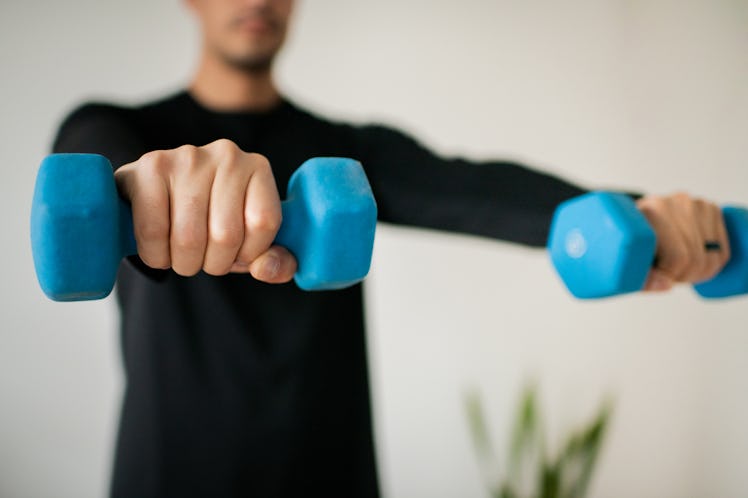High Weight, Low Reps? Or Low Weight, High Reps? New Study Ends Debate
A new study finds that it doesn’t really matter what type of resistance training you do — so long as you do it consistently.

Opinions on the most effective resistance exercises are as varied as the types of resistance exercises that exist. Some folks swear by powerlifting, while others extol the virtues of lighter weights with more reps, while still others evangelize the power of bodyweight exercises like planks, wall sits, or Pilates. Everyone thinks their type of exercise is the most effective, the most heart-healthy, the most important.
But now, we can finally settle that age-old debate, thanks to researchers at McMaster University in Ontario. It turns out the perfect resistance workout is whatever resistance workout you prefer. What really matters when it comes to weights and strength is sticking to it.
For the systematic review study, which was recently published in the British Journal of Sports Medicine, the research team examined data collected through 192 previous studies for a total of more than 5,000 individual participants. The data was split fairly evenly between men and women.
The main takeaway is simply that any type of strength training is good strength training. But the researchers also found that if your goal is to bulk up, smaller weights with more reps is ideal. And if you hope to build strength, heavier weights with fewer reps is the way to go.
“Our analysis shows that every resistance training prescription resulted in strength and muscle mass gains. Complex prescriptions are sufficient but unnecessary to gain strength and muscle. Simple programs are extremely effective, and the most important result is that people can benefit from any weightlifting program,” explained study co-author and McMaster grad student Bradley Currier. “Seek guidance if you are unsure where to begin and how to progress, but it doesn’t need to be complicated.”
“The biggest variable to master is compliance,” added co-author and grad student Jonathan Mcleod. “Once you’ve got that down, then you can worry about all of the other subtle nuances, but our analysis clearly shows that many ostensibly important variables just aren’t that essential for the vast majority of people.”
Muscle strength is essential to preventing injury and maintaining mobility as we age, but recent research also points to strength training as a mechanism for increased longevity. The findings included that people who practice strength training in conjunction with cardio had a 40% lower mortality rate during the study period compared to those who reported no exercise.
Staying active is vital to maintaining forever fitness and protecting our bodies as we age. Even short five-minute walks are beneficial. But to reap the most benefit from your workout of choice, the most important thing is to do it and do it regularly, frequently, and with purpose. You don’t have to go beast mode in CrossFit or try to lift twice your body weight, just move your body with intention and regularity, and you’ll be ahead of the game.
This article was originally published on